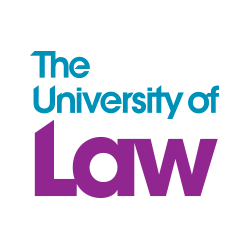The Ultimate Training Contract Applications Workshop | Tues 27th June, 4pm to 5pm
Join this virtual event for game-changing insights from successful lawyers and graduate recruiters. Master the art of applying for training contracts!



Mar 26, 2019
Written By Lauren Bowes
Mar 26, 2019
Written By Lauren Bowes
Unlike your undergraduate degree, the government doesn't have a loan system in place to hand money to you on a plate. You're probably already well aware that law study doesn't come cheap, but there are a lot of options out there.
Depending on where you decide to study, the LPC can cost anything from £12,000 to £16,690... Bit scary. That's before you even consider having to pay rent or having money to eat.
You've already probably got yourself into a significant amount of debt from your undergraduate degree, and if you did the law conversion course... well, we're here to tell you how to move forward.
Join this virtual event for game-changing insights from successful lawyers and graduate recruiters. Master the art of applying for training contracts!

Perhaps the easiest and most popular way to fund the LPC is through getting a training contract at a law firm and having the company pay your fees. Not only is this great financially, but it means you're guaranteed employment as soon as you finish the course.
You'll obviously need to start applying for training contracts early, before your LPC, for this plan. You can do this after the second year exams of your LLB, or your final year if you're doing a non-law degree. Your law firm could also fund your GDL!
Law schools and university departments occasionally offer grants and scholarships, most likely awarded on merit. There are others that have specific eligibility criteria, such as bursaries for international students or grants for students with a disability.
You'll have to find out your LPC provider's specific opportunities to find out details and deadlines.

Don’t let the cost of studying law put you off. Find out if you're eligible for a scholarship or bursary now.
The Law Society offers a scheme with the intention of increasing social diversity in the legal field. The scheme is available to students from disadvantaged backgrounds and not only offers financial support, but work experience and a professional mentor.
The DAS Plus also offers a training contract at a national Law Centre after your LPC.
If you're really struggling to find funding options, you could consider studying the LPC part-time, taking two years instead of one. This would you allow you time to get a part-time job and support yourself during the course.
You may be aware that recently the government has introduced postgraduate loans. The LPC, GDL and BPTC are not eligible, as these courses are diplomas, not master's courses. However the University of Law has changed the structure of their courses and now offer master's courses with integrated LPCs. This means you'll not only have your fees covered, but you'll end up with a master's degree and be a qualified lawyer in just a year.
You can find out more about the postgraduate loans here. It's likely that other law schools will begin to offer similar courses now the loan is available.
As you can see, there are plenty of options available, so the financial weight shouldn't be playing on your mind too much. Time to concentrate on applying!
Funding